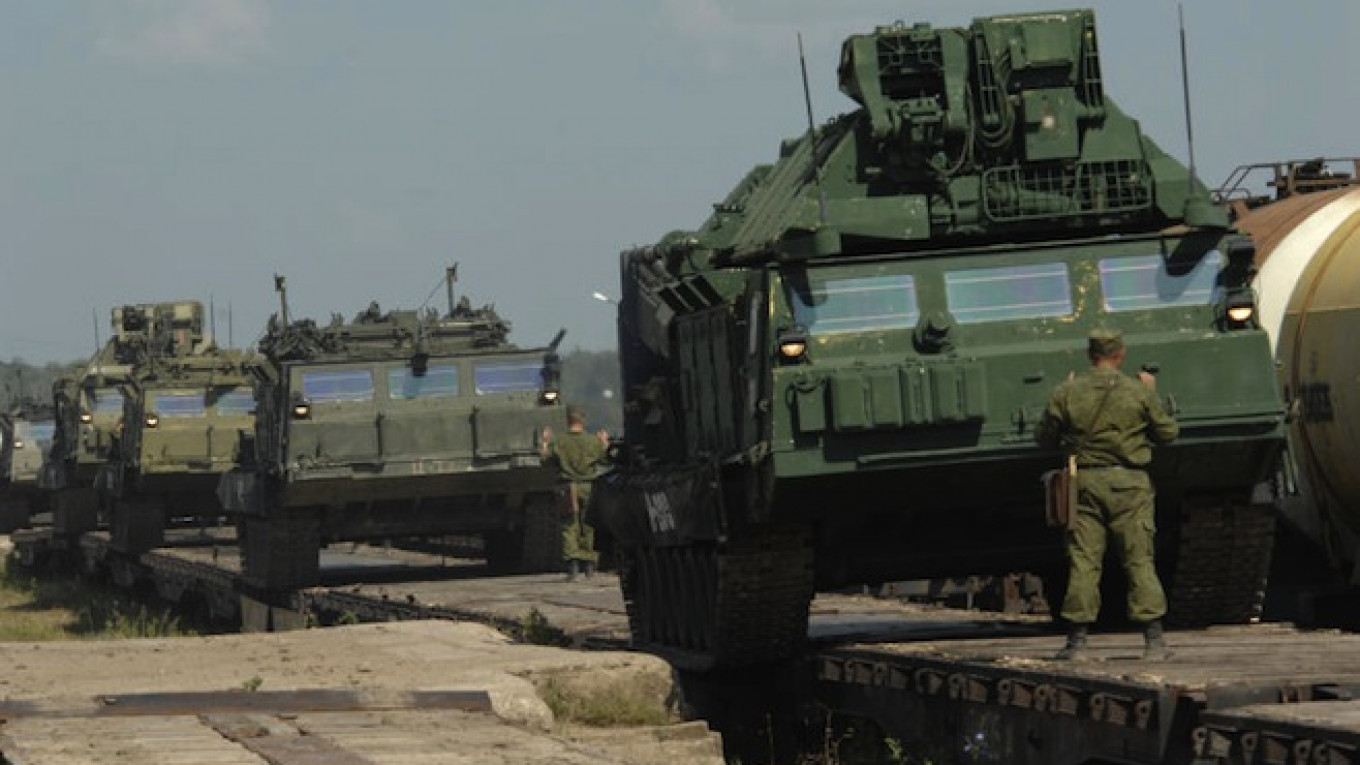Greece is negotiating with Russia for the purchase of missiles for its S-300 anti-missile systems and for their maintenance, Russia's RIA news agency quoted Greek Defense Minister Panos Kammenos as saying on Wednesday.
The report followed a visit by Greek Prime Minister Alexis Tsipras last week to Moscow, where he won pledges of Russian moral support and long-term cooperation but no fresh funds to help avert bankruptcy for his heavily indebted nation.
NATO member Greece has been in possession of the Russian-made S-300 air defense systems since the late 1990s.
"We are limiting ourselves to replacement of missiles [for the systems]," RIA quoted Kammenos, who is in Moscow for a security conference, as saying.
"There are negotiations between Russia and Greece on the maintenance of the systems … as well as for the purchase of new missiles for the S-300 systems," he said.
The Greek defense ministry in Athens later issued a statement quoting Kammenos as saying: "The existing defense cooperation programs will continue. There will be maintenance for the existing programs."
No other details were immediately available.
It was unclear where Greece, whose leftist government is struggling to secure the funds to meet its debt repayments, would find the money to buy more missiles.
Russian President Vladimir Putin said after his talks with Tsipras in Moscow last week that Athens had not asked for money to ease its debt crisis.
However, Greece is keen to revive its traditionally good relations with Moscow, prompting unease among some of its European partners at a time of deep tension between Russia and the West over the Ukraine crisis.
On Monday, the Kremlin said Putin had signed a decree ending a self-imposed ban on delivering its S-300 anti-missile system to Tehran after world powers, including Russia, reached an interim deal with Iran on curbing its nuclear program.
A Message from The Moscow Times:
Dear readers,
We are facing unprecedented challenges. Russia's Prosecutor General's Office has designated The Moscow Times as an "undesirable" organization, criminalizing our work and putting our staff at risk of prosecution. This follows our earlier unjust labeling as a "foreign agent."
These actions are direct attempts to silence independent journalism in Russia. The authorities claim our work "discredits the decisions of the Russian leadership." We see things differently: we strive to provide accurate, unbiased reporting on Russia.
We, the journalists of The Moscow Times, refuse to be silenced. But to continue our work, we need your help.
Your support, no matter how small, makes a world of difference. If you can, please support us monthly starting from just $2. It's quick to set up, and every contribution makes a significant impact.
By supporting The Moscow Times, you're defending open, independent journalism in the face of repression. Thank you for standing with us.
Remind me later.


